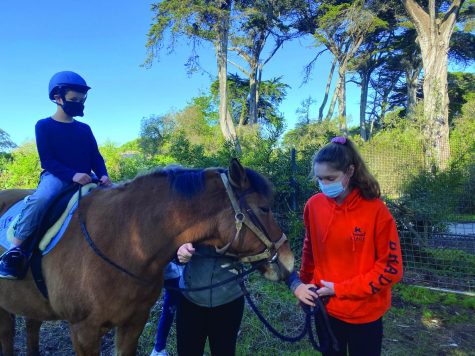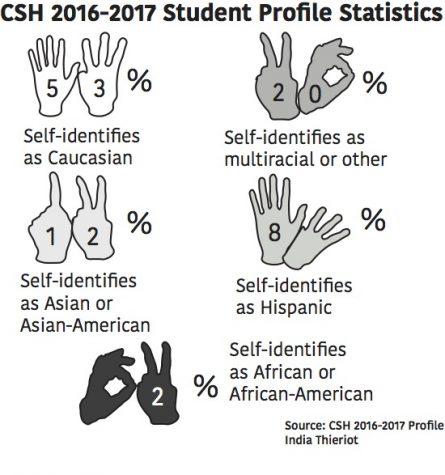Power teens
Famous teen influence can be detrimental to body image and self esteem of youth
Filling Instagram feeds and Snapchat stories with product advertisements, trademarked styles and “hot” trends, teen celebrities can influence the life and mind of youth, leading many to feel pressure to abide by unrealistic beauty expectations to be as “flawless” as their famous counterparts appear to be.
“When I see celebrities like Kylie Jenner and Gigi Hadid in the media, I kind of feel like I need to replicate what they look like in order to stay on trend and stuff like that,” senior Bea Gee said.
With over 78 million Instagram followers and a life constantly in the spotlight, Jenner, star of “Keeping up with the Kardashians,” may be far from the average teen. At the age of 17, the reality television star admitted to receiving lip injections to drastically alter the shape and size of her natural lips, and has since spawned a cosmetics empire, Kylie Cosmetics.
Using social media to her advantage for free publicity, with almost every post of Jenner’s flaunting her figure, full makeup and cosmetically-enhanced lips, normal teens may not feel so “normal” when comparing themselves to the highly publicized socialite.
“Lips are Kylie Jenner’s main thing but she also has a lot of other makeup, and it’s not even just her, it’s makeup in general that can affect how women see themselves,” senior Mackenzie Maly said. “It can make people feel great about themselves or even worse.”
Jenner’s products have become extremely popular among teens striving to achieve her look with liquid lipsticks and eyeliners selling out in minutes after their release, and body and lip trends become more prominent due to her massive celebrity status.
The Kylie Jenner lip challenge, a fad that has people take small items like a bottle cap or shot glass and use suction to temporarily augment their lips into a larger size like Jenner’s, has caused numerous injuries such as intense bruising, bursted blood vessels and permanent scar tissue from participants trying to emulate the star’s appearance.
“They start to ask ‘am I supposed to be doing that? This person, who I think is pretty cool, thinks her lips are a problem so mine must be too,’” school counselor Annie Egan said. “It’s a very skewed mirror into someone else’s reality, and that’s where it can become dysfunctional. You just don’t get the full story.”
Behind her business success and mature appearance, however, Jenner is still just 19, which can bring teen beauty ideals according to mainstream media into question.
“The media greatly affects how girls see themselves,” Egan said. “When you are inundated with pictures of peers or teen personalities, whether that was 10 years ago on TV or now on Instagram or Facebook, that becomes your goal, you want to look like them, act like them, talk like them.”
Over 90 percent of girls between 15 and 17 want to change at least one aspect of their physical appearance, and nearly a quarter of teens would consider plastic surgery to achieve their desired look, according to Heart of Leadership, organization that aims to inspire young women to become leaders of their communities.
Paired with a focus on appearance, many girls are more afraid of becoming fat than tragic circumstances such as cancer or losing their parents, according to the Council on Size and Weight Discrimination.
“The norm is that you sit there and look pretty, that’s what’s worth a picture,” Egan said. “You don’t show the other side, you don’t show the full 360. That is just not our life though. We’re doing things, we are speaking, we are trying. We’re just more than that.”
Teens are an especially susceptible demographic as what they see in the media is even more impactful to their body image, according to Egan.
Seeing “perfect” images of women in the public eye can be mentally harmful to many girls beginning at a young age, leading them to feel trapped in their own skin when they can’t attain specific beauty standards set by the media, according to Maly.
“It can be really detrimental, especially to young girls because that’s all they see and that’s what their idea of beauty is,” Maly said. “We see people on ads and we think that they’re so perfect and that’s what we have to look like, but that’s not true.”
Both Egan and Maly recommend giving context to images of “perfect” models in the media, recognizing that what is shown is most likely a photoshopped rendition of the model to appear flawless.
Finding little things everyday about oneself that teens appreciate can rewire the brain into thinking more positively regarding self esteem and body image, leading to reduced use of social media as well, according to Egan.
“When people are fully satisfied and happy in their lives, they use social media a lot less because they’re doing other things and not always looking for what someone else is doing,” Egan said. “It is often when you are looking for connection the most, is when you’re finding yourself going deeper and deeper into social media to find something.”
Instead of judging famous teens such as Jenner solely for their appearance, Maly said she chooses to judge them based on their morals and attitude, while acknowledging that each celebrity has flaws and insecurities.
“I don’t really like to judge them solely based on their appearance,” Maly said. “I think it depends on how they act and how they handle themselves, if they’re nice to people or if they’re just rude. I didn’t like Kylie Jenner for a really long time, but after she started opening herself up more, making a name for herself and coming forward with her insecurities, I appreciated her a lot more.”






Kylie Jenner • Dec 12, 2016 at 9:09 pm
Thanks for the nice words Mackenzie!